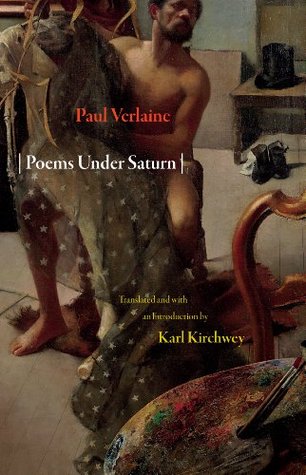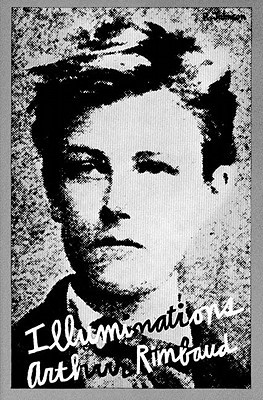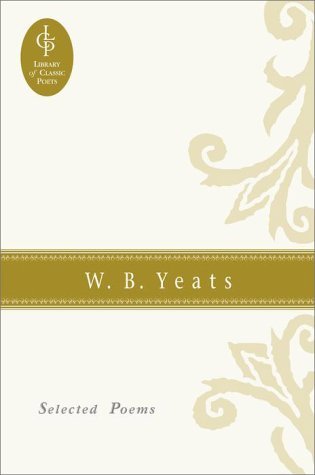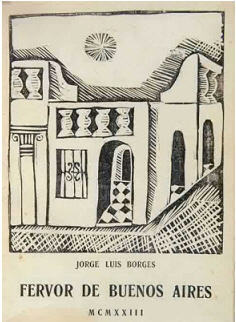Rating: ★★★
The last stroke of midnight dies.
All day in the one chair
From dream to dream and rhyme to rhyme I have
ranged
In rambling talk with an image of air:
Vague memories, nothing but memories.
— W.B. Yeats, “Broken Dreams”, The Wild Swans at Coole (1919)
From the depths of anything mysterious and unfathomable, here come bursts of poetry moving across the years, making impressions with an assortment of intensities and kaleidoscopic visualizations: W.B. Yeats and his unique art. This collection includes verses clear as an Irish summer day; impenetrable as another human soul. And that is the crux of the matter: the complexity to be found in Yeats' poetry may be perceived as utterly beautiful or absolutely inscrutable; a colorful enigma sometimes tiptoeing to the brink of tedium. The most readable thing here is the formidable introduction that tries to shed some light on this poet's work.
A poet in love, a poet in misery. His mind, burdened with the familiar weight of unrequited love – embodied by the fierce Maud Gonne, a woman who enchanted him with her beauty and frankness and became his long-time muse – and heavily influenced by the political scenario of his country, brought different styles to life, which are clearly seen in this selection. Poems replete with love, ideals and disillusion, longing and unhappiness, a fervent nationalism, the loud and the implicit, life and the ruins that time, unapologetically, leaves behind; copious amounts of symbolism, mystique, folklore, question marks... and diverse techniques that never cease to amaze, as the richness of his language. So, when you make some sense out of all those elements, ah, a real treat. I wish that would have happened more often. Perhaps, if I had been steeped in Irish history and mythology, it would have been easier for me to understand, his earlier work in particular. Unfortunately, most of this iconic poet's work didn't resonate with me that much. I did find some memorable poems I read many times, notably some of his later years, whose reflections on human existence, age and death are hauntingly evocative. For that is also what this book encapsulates: an entire life. It perfectly depicts the evolution of a man and his mind; his first steps and the pinnacle of his art.
I think I will revisit this book someday. Ever since I've read one of his plays, I became very fond of his exquisitely lyrical language. It was only fair to assume I was going to love his poetry. (?) But I didn't; I loved a couple of poems but overall, I liked it, and I struggled; therefore, I can't give this a 4/5-star rating just to, you know, look good in front of my fellow poetry lovers.
This is one of the few times I feel morally obligated to carry out some sort of brief analysis based on ratings of a poetry collection that wasn't exactly what I expected. It must be the echo of my own guilt.
From Crossways (1889)
✩✩
▪▫▪
From The Rose (1893)
✩✩✩✩
When You Are Old
When you are old and grey and full of sleep,
And nodding by the fire, take down this book,
And slowly read, and dream of the soft look
Your eyes had once, and of their shadows deep;
How many loved your moments of glad grace,
And loved your beauty with love false or true,
But one man loved the pilgrim soul in you,
And loved the sorrows of your changing face;
And bending down beside the glowing bars,
Murmur, a little sadly, how Love fled
And paced upon the mountains overhead
And hid his face amid a crowd of stars.
The Two Trees
…
Gaze no more in the bitter glass
The demons, with their subtle guile,
Lift up before us when they pass,
Or only gaze a little while;
For there a fatal image grows
That the stormy night receives,
Roots half hidden under snows,
Broken boughs and blackened leaves.
For all things turn to barrenness
In the dim glass the demons hold,
The glass of outer weariness,
Made when God slept in times of old.
...
▪▫▪
From The Wind Among the Reeds (1899)
✩✩✩
The Secret Rose
...I, too, await
The hour of thy great wind of love and hate.
▪▫▪
From In the Seven Woods (1903)
✩✩✩
▪▫▪
From The Green Helmet and Other Poems (1910)
✩✩✩✩
No Second Troy
…
Was there another Troy for her to burn?
Reconciliation
…
But, dear, cling close to me; since you were gone,
My barren thoughts have chilled me to the bone.
▪▫▪
From Responsibilities (1914)
✩✩✩
September 1913
…
Romantic Ireland's dead and gone,
It's with O'Leary in the grave.
...
Beggar to Beggar Cried
'Time to put off the world and go somewhere
And find my health again in the sea air,'
Beggar to beggar cried, being frenzy-struck,
'And make my soul before my pate is bare.-
'And get a comfortable wife and house
To rid me of the devil in my shoes,'
Beggar to beggar cried, being frenzy-struck,
'And the worse devil that is between my thighs.'
…
(Very classy.)
▪▫▪
From The Wild Swans at Coole (1919)
✩✩✩✩
The Wild Swans at Coole
…
But now they drift on the still water,
Mysterious, beautiful;
Among what rushes will they build,
By what lake's edge or pool
Delight men's eyes when I awake some day
To find they have flown away?
An Irish Airman Foresees His Death
I know that I shall meet my fate,
Somewhere among the clouds above;
Those that I fight I do not hate,
Those that I guard I do not love...
Ego Dominus Tuus
...
Ille. His art is happy, but who knows his mind?
▪▫▪
From Michael Robartes and the Dancer (1921)
✩✩✩
The Second Coming
Turning and turning in the widening gyre
The falcon cannot hear the falconer;
Things fall apart; the centre cannot hold;
Mere anarchy is loosed upon the world...
▪▫▪
From The Tower (1928)
✩✩✩✩
Sailing to Byzantium
That is no country for old men. The young
In one another's arms, birds in the trees
– Those dying generations – at their song,
The salmon‐falls, the mackerel‐crowded seas,
Fish, flesh, or fowl, commend all summer long
Whatever is begotten, born, and dies...
(One of the best.)
The Tower
…
Did all old men and women, rich and poor,
Who trod upon these rocks or passed this door,
Whether in public or in secret rage
As I do now against old age?
But I have found an answer in those eyes
That are impatient to be gone;
Go therefore; but leave Hanrahan,
For I need all his mighty memories.
...
Does the imagination dwell the most
Upon a woman won or woman lost?
If on the lost, admit you turned aside
From a great labyrinth out of pride,
Cowardice, some silly over-subtle thought
Or anything called conscience once;
And that if memory recur, the sun's
Under eclipse and the day blotted out.
...
Two Songs From a Play
…
Everything that man esteems
Endures a moment or a day.
Love's pleasure drives his love away,
The painter's brush consumes his dreams...
A Man Young and Old
…
Never to have lived is best, ancient writers say;
Never to have drawn the breath of life, never to have
looked into the eye of day;
The second best's a gay goodnight and quickly turn away.
▪▫▪
From The Winding Stair and Other Poems (1933)
✩✩✩✩
In Memory of Eva Gore-Booth and Con Markiewicz
…
Dear shadows, now you know it all,
All the folly of a fight
With a common wrong or right.
The innocent and the beautiful
Have no enemy but time...
Death
…
He knows death to the bone –
Man has created death.
A Dialogue of Self and Soul
My Soul. I summon to the winding ancient stair;
Set all your mind upon the steep ascent,
Upon the broken, crumbling battlement,
Upon the breathless starlit air,
Upon the star that marks the hidden pole;
Fix every wandering thought upon
That quarter where all thought is done:
Who can distinguish darkness from the soul?
…
(Sublime.)
Blood And The Moon
…
For wisdom is the property of the dead,
A something incompatible with life; and power,
Like everything that has the stain of blood,
A property of the living; but no stain
Can come upon the visage of the moon
When it has looked in glory from a cloud.
Vacillation
…
What's the meaning of all song?
'Let all things pass away.'
▪▫▪
From Words for Music Perhaps
✩✩✩
▪▫▪
From A Woman Young and Old
✩✩✩
II
Before the world was made
…
From mirror after mirror,
No vanity's displayed:
I'm looking for the face I had
Before the world was made.
▪▫▪
From A Full Moon in March (1935)
✩✩✩
▪▫▪
From Last Poems (1936-1939)
✩✩✩✩
The Wild Old Wicked Man
…
I have what no young man can have
Because he loves too much.
Words I have that can pierce the heart,
But what can he do but touch?'
...
Man and the Echo
Man
In a cleft that's christened Alt
Under broken stone I halt
At the bottom of a pit
That broad noon has never lit,
And shout a secret to the stone.
All that I have said and done,
Now that I am old and ill,
Turns into a question till
I lie awake night after night
And never get the answers right...
* Photo credit: Book cover via Goodreads.




























